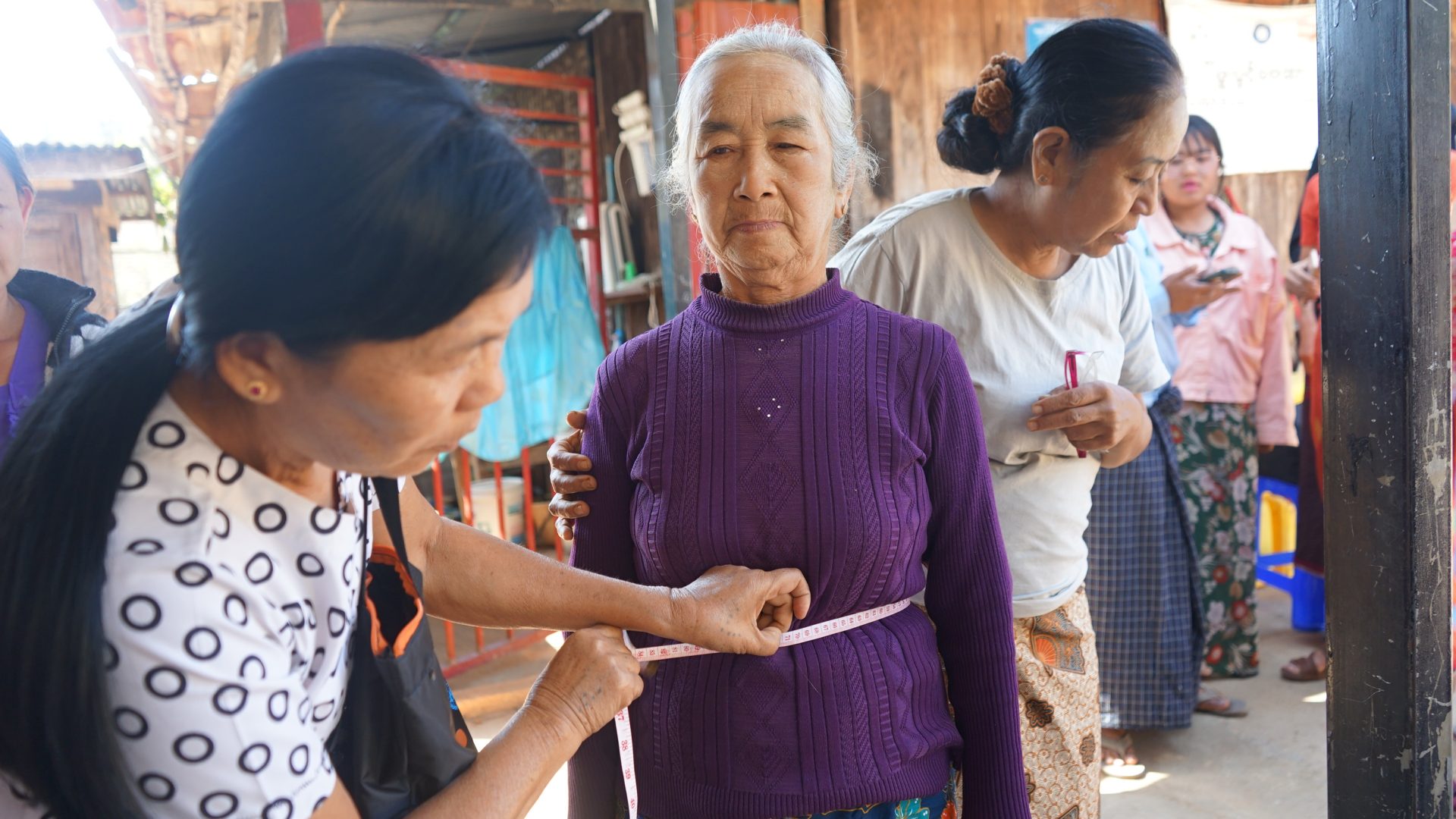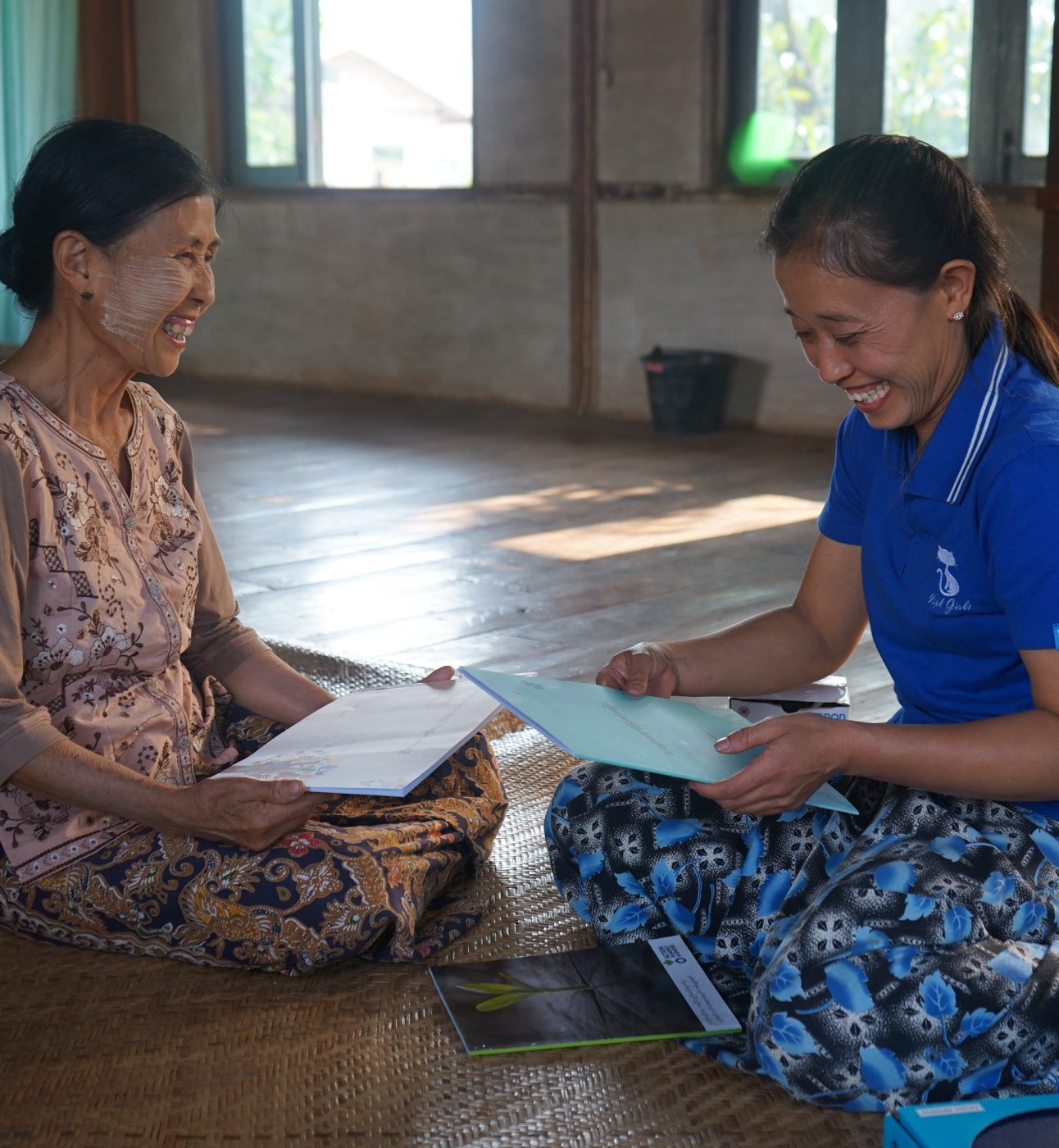Hunger at their doorstep – challenges in food security
There is a pressing concern of food insecurity among older people in Myanmar, with significant gender disparities. Access to sufficient food remains an uphill battle, as 72 per cent of older women and 54 per cent of older men reported inadequate access to food, while 79 per cent of all older people report compromising the quality of their meals. Socio-economic inequalities disproportionately impact older women, making it imperative to address financial constraints hindering their ability to afford food.
“Even though I would like to eat, we have no food at home. Instead, I drink water at night to fill my stomach.”
Healthcare on the brink due to inaccessibility
Challenges persist in healthcare access for both older women and men in Myanmar. 60 per cent of older women and 52 per cent of older men reported an inability to access health services. Factors like safe access to health facilities, distance, service unavailability, and the affordability of medicines contribute to this divide, demanding enhanced healthcare support, with targeted interventions needed to address gender inequalities.
“Medicine prices are too high, and I can’t afford them. Instead, I am taking traditional medicines, but in the long run, my health is deteriorating.”
Weathering mental health challenges
71 per cent of older people in Myanmar express feelings of worries, anxiety, and loneliness, with concerns primarily centred around health, income, and safety. Older women expressed higher levels of worries overall, while older men voiced heightened fears for their safety due the ongoing conflict in their areas. Addressing these mental health challenges necessitates fostering connections among older people and creating platforms for mutual support and knowledge-sharing.
“People have become more friendly with one another, and neighbours are taking more care of each other”.
Falling through the cracks: the precarious state of income security and borrowing
Gender disparities are evident in income security among older individuals, underscoring the financial struggles faced by older women. 78 per cent of older women and 72 per cent of older men do not have a stable income source. A staggering 68 per cent of individuals have less than a week’s worth of savings, indicating a deteriorating economic situation. Moreover, relying solely on income often proves insufficient to cover living costs, leading older people to resort to borrowing money.
Immediate actions for improving older peoples’ well-being
In response to the alarming findings, HelpAge International proposes targeted recommendations to address the pressing challenges faced by older people in Myanmar:
- Enhance food security: Allocate resources for tailored food assistance programs and support sustainable agricultural initiatives
- Improve healthcare access: Invest in better healthcare availability and affordability, along with age-sensitive care training for community workers
- Strengthen mental health support: Allocate funding for tailored psychosocial support, counselling, and awareness-raising efforts
- Enhance protection measures: Create safe spaces and implement training to prevent abuse and exploitation
- Promote gender equality: Adopt a gender-responsive approach, empowering older women economically
- Build local capacity: Provide training and support to local NGOs and community organisations to address older people’s needs effectively.


